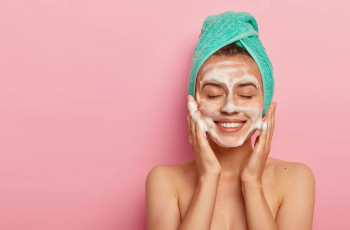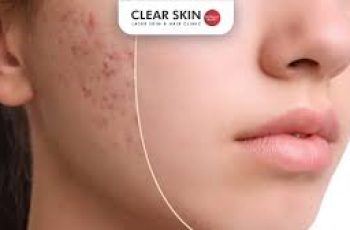
Bad Beauty Habits You Didn’t Know You Were Doing (And How to Fix Them!)
We all have routines, and sometimes habits just sneak in without us realizing the harm they can do. When it comes to beauty, little bad habits can cause big problems down the road.
Would you change yours if you knew the truth? Let’s dive into some common bad beauty habits many people do without knowing—and how to break them for healthier skin and hair.
Sleeping with Makeup On: A Recipe for Trouble
This might sound familiar, especially after a long day when all you want to do is crash. But sleeping with makeup on is a beauty sin that your skin definitely regrets.
Makeup blocks your pores, trapping dirt and oils underneath. This often leads to blemishes like spots, blackheads, and irritation.
Beyond clogged pores, makeup can accelerate skin aging. While you sleep, your skin undergoes a vital regeneration process, producing collagen and shedding pollutants.
Leaving a layer of foundation on is like putting a barrier on your skin’s natural repair system.
That means wrinkles, dullness, and loss of elasticity can happen faster. Plus, the leftover makeup dirties your pillowcases, which can cause more skin issues.
So, no matter how tired you are, make cleansing your face a top priority before bed. Your skin—and your pillow—will thank you.
Skipping Moisturizer at Night: Missing Out on Skin Repair
Nighttime is when your skin does its most important work. It cleanses itself from daily damage, repairs cells, and renews collagen. This process can take up to eight hours.
But let’s be honest, who actually sleeps for a full eight hours regularly?
This is exactly why a night moisturizer is crucial. Unlike daytime creams, night formulas are packed with antioxidants, vitamins, and nutrients designed to support your skin’s overnight repair.
They help replenish moisture, soothe irritation, and boost skin health.
Avoid daytime moisturizers with SPF at night. Though important during the day, SPF in night creams can clog pores and cause breakouts when left on too long.
So, invest in a good night moisturizer and apply it religiously. Your skin’s overnight glow depends on it!
Brushing Hair When Wet: A Recipe for Breakage
Did you know your hair is at its weakest when wet? Many people brush or comb their hair right after washing, but this can cause serious breakage, especially if your hair is fine or prone to damage.
Instead, gently apply a detangling spray or smoothing product while your hair is damp. Let your hair air-dry fully, then use a wide-toothed comb or a brush designed for dry hair.
This method minimizes hair fall and keeps your strands smooth and shiny.
If you brush wet hair, you risk pulling and snapping strands that are stretched and fragile. Switching up this habit can make a big difference in hair health over time, giving you stronger, thicker locks.
Dirty Makeup Brushes: Germ Hotspots Causing Breakouts
You might never guess, but dirty makeup brushes can be a major cause of persistent breakouts. Bacteria and grime accumulate deep in the bristles.
Every time you apply makeup with an unclean brush, you’re spreading those germs onto your face.
This can cause spots to flare up, especially where you apply bronzer or blush. To avoid this, use a disinfecting brush cleaner regularly. Spray your brushes after every use, and do a deep clean every two weeks.
Keeping brushes clean not only protects your skin but also improves makeup application. You get smoother, more even coverage without the risk of infection or irritation. It’s a small effort with a big payoff.
Forgetting Sunscreen Daily: A Hidden Skin Enemy
Many people only slather on sunscreen before a day at the beach or a sunny outing. But sun protection isn’t just for summer or sunny days—it’s a year-round essential.
UV rays from the sun penetrate clouds, windows, and even water. UVA rays age your skin by breaking down collagen, while UVB rays cause sunburn.
Both types of rays contribute to skin damage, premature wrinkles, and increase skin cancer risk.
Daily use of sunscreen or a moisturizer with SPF shields your skin from these invisible dangers. Even on cloudy or cold days, those rays are hard at work.
Make sunscreen a non-negotiable part of your morning routine, rain or shine.
Dirty Phones: Bacteria Breeding Grounds You Touch All Day
You might be shocked to hear this, but your phone harbors more bacteria than a public toilet seat. Every time you touch your phone and then your face, you transfer germs that can clog pores and cause breakouts.
Think about how often your phone goes on dirty surfaces or in your bag. Then it comes in contact with your skin, spreading grime and bacteria.
If you struggle with stubborn spots around your jawline or cheeks, your phone might be the culprit.
Clean your phone regularly with antibacterial wipes safe for electronics. This small habit helps reduce breakouts and keeps your tech germ-free.
Your skin and health will thank you for this simple hygiene upgrade.
Going to Bed Too Late: Shortchanging Your Skin’s Repair Time
Sleep isn’t just about rest—it’s a crucial time for your skin to regenerate. Collagen production and detoxification kick into full gear about three hours after you fall asleep.
If you’re hitting the bed late—say midnight or later—you cut short the window your skin has to repair itself before morning. This can result in dullness, fine lines, and more noticeable fatigue on your face.
Try to get to bed earlier if you want fresher, younger-looking skin. Even if you’re busy, winding down and turning off screens earlier can help your skin do its nightly magic.
Plus, you’ll wake up feeling more rested overall.
Ignoring Dehydrated Skin: Why Water Isn’t Enough
Drinking water is great for your health, but your skin often stays thirsty no matter how much you drink. It’s your body’s largest organ and constantly exposed to pollution, weather changes, and stress.
Dehydrated skin looks dull, feels tight, and ages faster. This can happen to all skin types, even oily ones. The best way to combat dehydration is with topical skincare products that lock moisture in.
Masks, serums, and moisturizers rich in hydrating ingredients restore your skin’s moisture barrier.
For example, a marine moisture mask packed with serum can give your skin an intense boost of hydration and nutrients.
Don’t wait until your skin feels parched—hydrate from the outside as well as the inside to maintain a glowing, healthy complexion.
Final Thoughts: Break These Habits for Better Skin & Hair
It’s surprising how many bad beauty habits are hiding in plain sight, often unnoticed until skin or hair problems appear.
From sleeping in makeup to dirty brushes, and skipping sunscreen to late nights, these habits can harm your natural glow.
The good news is, changing habits is easier than it seems. Small tweaks like cleansing before bed, moisturizing nightly, brushing hair properly, and cleaning your phone can transform your beauty routine.
Your skin and hair will respond with better health, fewer breakouts, less aging, and more radiance. Start today by picking one habit to fix and watch your skin thank you over time.
After all, beautiful skin starts with smart habits!


